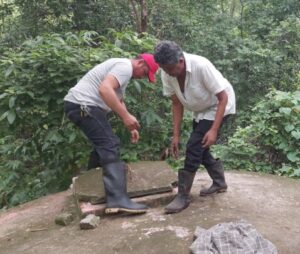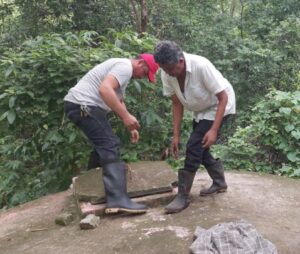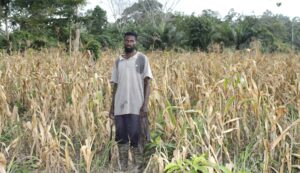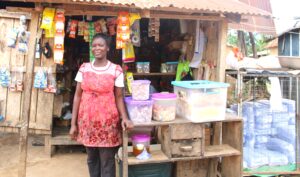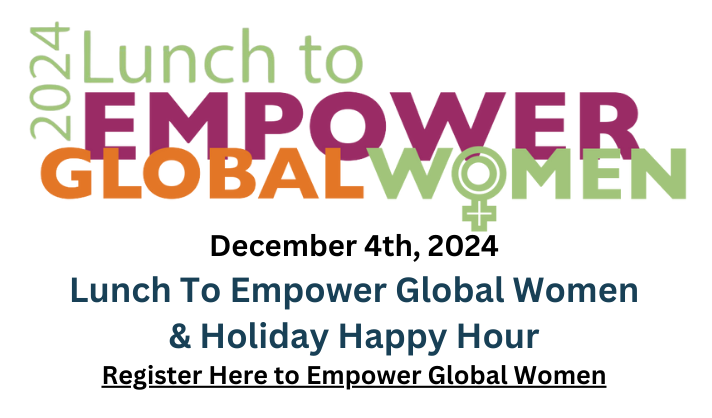
The 2019-2020 Cohort of “Agripreneurs” is Off to a Solid Start
By Ebenezer Jones – Graduate Entrepreneurship Program Manager
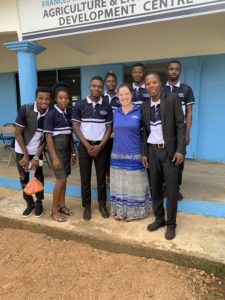
The new cohort with Executive Director, Nora Tobin.
Graduate unemployment has become a major developmental challenge in Ghana, posing a threat to national security. This unfortunate phenomenon is not only the result of the inability of already existing businesses to offer employment, but also the result of the lack of entrepreneurial skill development among many young people in Ghana. This problem needed a solution along the lines of an agricultural enterprise skills development and capacity building program.
It is against this framework that the Self-Help International Graduate Entrepreneurial Program (GEP) was introduced in Jan. 2018 to try to tackle the rising graduate unemployment situation in Ghana by developing agricultural business skills and building the capacity of recent graduates. The program seeks to train, guide, and provide the necessary financial resources to enable graduate entrepreneurs (“agripreneurs”) to develop and implement agribusiness proposals and create employment.
In Sep. of 2019, two agripreneurs successfully graduated from their entrepreneurial development training. Following their graduation, seven graduates from agriculture-oriented universities and trade schools in Ghana began participating in the GEP to form the 2019-2020 cohort. Agripreneurs in the 2019-2020 cohort of the GEP have projects involved in the small-scale production, processing, packaging, and marketing of hot peppers, corn, mushrooms, carrots, and poultry. These projects were informed by market research and a cash flow analysis to confirm the feasibility, viability, and profitability of these ventures.
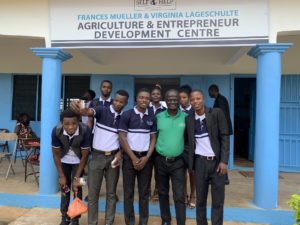
The new cohort with Ghana Country Director, Benjamin Kusi.
The market research and cash flow analysis revealed some important pieces of information. They showed that hot pepper is a very important spice in the Ghanaian market; in a typical Ghanaian market, it is sold in various forms such as fresh, dried, or powdered, and it attracts a lot of buyers.
The analysis also demonstrated that producing corn in the rainy seasons, carrots in the dry season, and mushrooms all year round is a profitable venture that reduces the cost of production and takes advantage of the seasonal changes in Ghana. Finally, it showed that the demand for poultry has increased over the past few years following the rapid growth of hotels, restaurants, and the fast food sector.
With just three months (Sep.-Oct. 2019) into the project, the first batch of poultry birds are ready for market, the corn is almost ready for harvesting, the mushrooms have been inoculated and cropped, the pepper has started flowering, and the GEPs are preparing to plant carrots.
The Self-Help team is very optimistic that, by the end of the training, participating graduates will have acquired the knowledge, attitude, skills, inspiration, aspirations, and empowerment needed to: run the agribusiness ventures they have started; responsibly start other ventures; create employment opportunities; and train other young people in their own communities. With these victories, Self-Help’s team in Ghana is hopeful about winning the fight against hunger in its own small way.

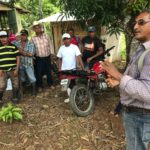 Previous Post
Previous Post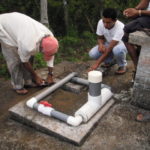 Next Post
Next Post